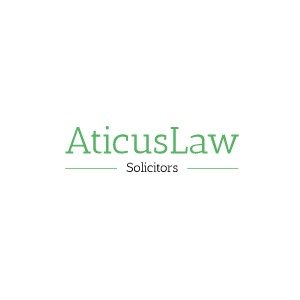Best Foreclosure Lawyers in Wilmslow
Share your needs with us, get contacted by law firms.
Free. Takes 2 min.
Free Guide to Hiring a Real Estate Lawyer
List of the best lawyers in Wilmslow, United Kingdom
About Foreclosure Law in Wilmslow, United Kingdom
Foreclosure in the United Kingdom, particularly Wilmslow, is the legal process by which a lender repossesses a home due to the homeowner’s failure to pay the mortgage. This process is a part of U.K property law and is also referred to as repossession. It's important to note that the law generally works in favor of the homeowner and provides multiple opportunities for them to correct the default before their property is repossessed.
Why You May Need a Lawyer
Pursuing or dealing with a foreclosure can be a complex and daunting process. A lawyer can be beneficial in many situations such as negotiating with your lender for a forbearance agreement, a loan modification, or other forms of relief. If you’re facing foreclosure, a lawyer can explain your options, represent you in court hearings, and help protect your rights throughout the process. Should a lender violate any foreclosure procedures, a lawyer can identify such infractions and build a robust defense on your behalf.
Local Laws Overview
The U.K property laws grant protections to homeowners in the area of foreclosure. One of them is the pre-action protocol for possession claims, which requires a lender to discuss matters with a borrower before taking legal action. It aims to provide an opportunity for the borrower to make any necessary arrangements to repay their debt. In Wilmslow and the rest of the U.K, only a county court judge can authorize repossession of a property, ensuring impartiality and fairness to both the borrower and lender.
Frequently Asked Questions
What is the Foreclosure process in Wilmslow, UK?
The foreclosure process begins when a homeowner defaults on their mortgage payments, after which a lender can start legal proceedings for the repossession of the property. The borrower will be issued a claim for possession and a court will set a hearing date where the borrower can argue their case.
Can I stop the foreclosure process?
Yes, the foreclosure process can be halted if you come to an agreement with your lender or pay the mortgage arrears in full, at any time before the repossession of your property. A lawyer can assist in negotiating repayment terms with the lender.
What happens after my property is repossessed?
The lender will typically arrange to sell the home, often at auction, to recover the debt. If there's any outstanding balance after the sale, the lender can seek a judgement to recover this amount from the borrower.
Can I get my home back after repossession?
Once a home is repossessed and sold, it's very difficult to get it back. However, you may have a claim if the sale was conducted improperly.
What is a forbearance agreement?
A forbearance agreement is a temporary postponement of mortgage payments granted by the lender. This is meant to give the borrower a chance to catch up on overdue payments. The particulars of the agreement are negotiated between the borrower and the lender.
Additional Resources
The Citizens Advice is an organization that provides free, confidential, and independent advice to help people overcome their problems, including foreclosure. The National Debtline, a non-profit organization, provides free confidential and independent advice on how to deal with debt problems.
Next Steps
If you are facing foreclosure in Wilmslow, it is advisable to consult with a lawyer to understand all the available options better. Engage one as early as possible to check if you fall within any of the causes that can result in halting the foreclosure process. Your lawyer can help negotiate with the lender on your behalf and represent your best interests in court if necessary.
Lawzana helps you find the best lawyers and law firms in Wilmslow through a curated and pre-screened list of qualified legal professionals. Our platform offers rankings and detailed profiles of attorneys and law firms, allowing you to compare based on practice areas, including Foreclosure, experience, and client feedback.
Each profile includes a description of the firm's areas of practice, client reviews, team members and partners, year of establishment, spoken languages, office locations, contact information, social media presence, and any published articles or resources. Most firms on our platform speak English and are experienced in both local and international legal matters.
Get a quote from top-rated law firms in Wilmslow, United Kingdom — quickly, securely, and without unnecessary hassle.
Disclaimer:
The information provided on this page is for general informational purposes only and does not constitute legal advice. While we strive to ensure the accuracy and relevance of the content, legal information may change over time, and interpretations of the law can vary. You should always consult with a qualified legal professional for advice specific to your situation.
We disclaim all liability for actions taken or not taken based on the content of this page. If you believe any information is incorrect or outdated, please contact us, and we will review and update it where appropriate.








